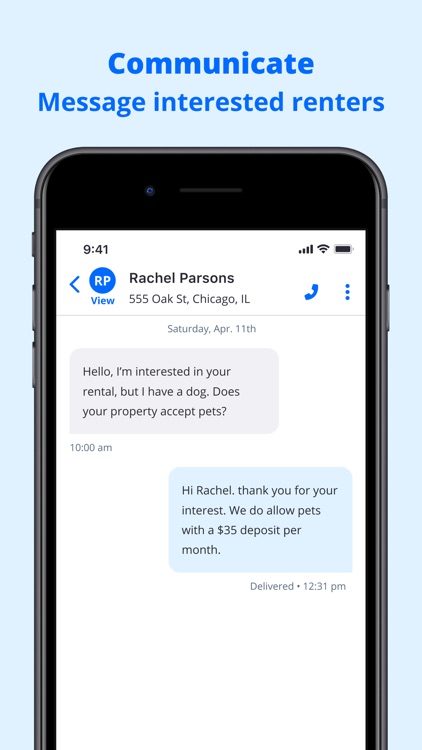
JWC Rentals Property is located in Killeen Texas and specializes in residential property. They rent to single families. In the last six years, they have generated more than a million in revenues from their properties. This is an impressive performance for a local business. JWC has eight employees who work from a single location.
JWC offers a limited number of services. However, there are some notable perks. First, it does allow tenants to bring pets to certain properties. This includes cats, ferrets, and dogs. However, aggressive breeds of animals are typically not allowed. You can also pay your rent online through their tenant portal. It may take several days for the rent to show up in your bank account. This service is not always free.

You can also use the shuttle bus to get around town. If you get locked out, they have an on-site locksmith. They also have an online portal which can be accessed via a smart phone.
Unlike some property management companies, JWC does not require a credit card to process an application. Instead, they require applicants to fill out an application and provide their banking information. Alternatively, they can use a check or money order. However, if your bank does not accept a prepaid credit card, you will have to pay the money in cash. The bank will then send you a renewal notice 30 to 40 days before your lease expires.
As for the name JWC, it comes from the name of the owner, Jim Wright. He's an Army veteran, having spent 15 years in the military. After his service, he moved to real estate. His company was founded in 1974. From this venerable operation, they manage hundreds of residential and commercial properties and serve over 2,000 clients each year. Besides rentals, they specialize in property management, sales, and inspections.

It is rare to find a company that can combine all of these aspects into one efficient operation. They are open from Monday to Sunday, for example. Tenants will find it easier to use their online portal for secure online rent payments. That is the sign of a reliable real estate company. Because they have been in business for many years, they are well-versed in their field. Your local JWC will see positive changes thanks to their customer service focus, and the dedication of their team to being the best in what they do. JWC has the solutions for you, whether you are looking to buy a home or rent a place. It's no surprise that JWC's properties are leased faster than their competition due to their outstanding customer service record.
FAQ
What are the most frequent handyman repairs that you need to make?
Repairs by handymen include roofs repairs, windows, doors or gutters. Handymen can help with home improvement and building projects that are not feasible for DIY homeowners.
What's the typical time taken to complete a DIY project like this?
An average DIY project takes between two and four hours. The complexity and difficulty of the project will determine how long it takes.
What is the average time it takes for a handyman in order to complete a project?
It all depends on how large the project is. The time it takes to finish smaller projects is more common than larger ones. No matter how large the project is, a handyman can finish it in less than a week.
What do the majority of handymen charge an hour for?
Handyman fees range from $50 to $75 per hour. Most have been doing this for years. They spend around 10 hours on average working for any given job. They are well-known and do not need advertising.
They develop long-lasting customer relationships and specialize.
The main difference between them, other contractors, is that they are fast, reliable, cheap, and efficient.
Most people know at least 2-3 of these guys they trust enough to call when they need help.
Some people are so successful that they start their own company.
Statistics
- An estimate was that in 2003, the market for home maintenance and repair spending was up 14% 2001 to 2003. (en.wikipedia.org)
- With a strong housing market, the handyman and general maintenance worker industry are expected to grow by nearly 10% in the next decade. (housecallpro.com)
- “Once the pandemic hit, that number fell to about 20%.” (inquirer.com)
- A franchise was approximately $110,000 with a franchise fee of $14,900, according to a spokesperson for a national handyman franchise. (en.wikipedia.org)
- Mila keeps a commission of 20% for each completed service performed by Friends and charges various service fees regarding work done by Pros. (appjobs.com)
External Links
How To
How to Replace Broken Tiles
Step 1 - Remove the old tiles.
Removing the tiles from your flooring is a good idea. If you plan to use these tiles later, it is important that you keep them in good condition. Note which pieces are missing or damaged to avoid having to search for replacements.
Step 2 - Select New Tiles
Check out these options for tile replacement.
-
Find a new tile that's similar to the one you removed.
-
Use the measurements you took when removing the tile to find a matching piece. This will make it easy to get the correct size without having again to measure.
-
Find colors, patterns textures, sizes and shapes in all possible combinations.
-
Consider what grout you prefer to use. Some people like a consistent color while others prefer mixing it.
-
Choose a tile that resists moisture.
-
Make sure you consider where your tile will be placed. It can help you save money and time.
-
Once you've found the tile that suits your needs, you can place your order online.
Step 3 - Place the tiles.
Install your tiles using the same method you used before. You must align them correctly to ensure they fit together.
Step 4 - Clean up
Before putting down the final layer of protective material, clean up all the debris from the floor.
This will prevent dirt and dust from settling into the cracks between the tiles that could cause mold.
Step 5: Sand down the Floor
After cleaning, sand the floors to remove any particles.
Step 6 – Finish Off
After the floor has been smoothed, you can apply protective coatings to the tiles. It is important to wait before you apply the protective coatings.
For stain protection, you can always use a product called "damp&dry" to clean your floors.
However, it will not cover all possible problems that may arise after you have installed your tiles. For example, if you have a lot of kids running around, you may want to consider using an anti-slip coating on top of the protective layer.
Finally, do not forget to keep the protective sealer on for several more weeks before you move back into your home.